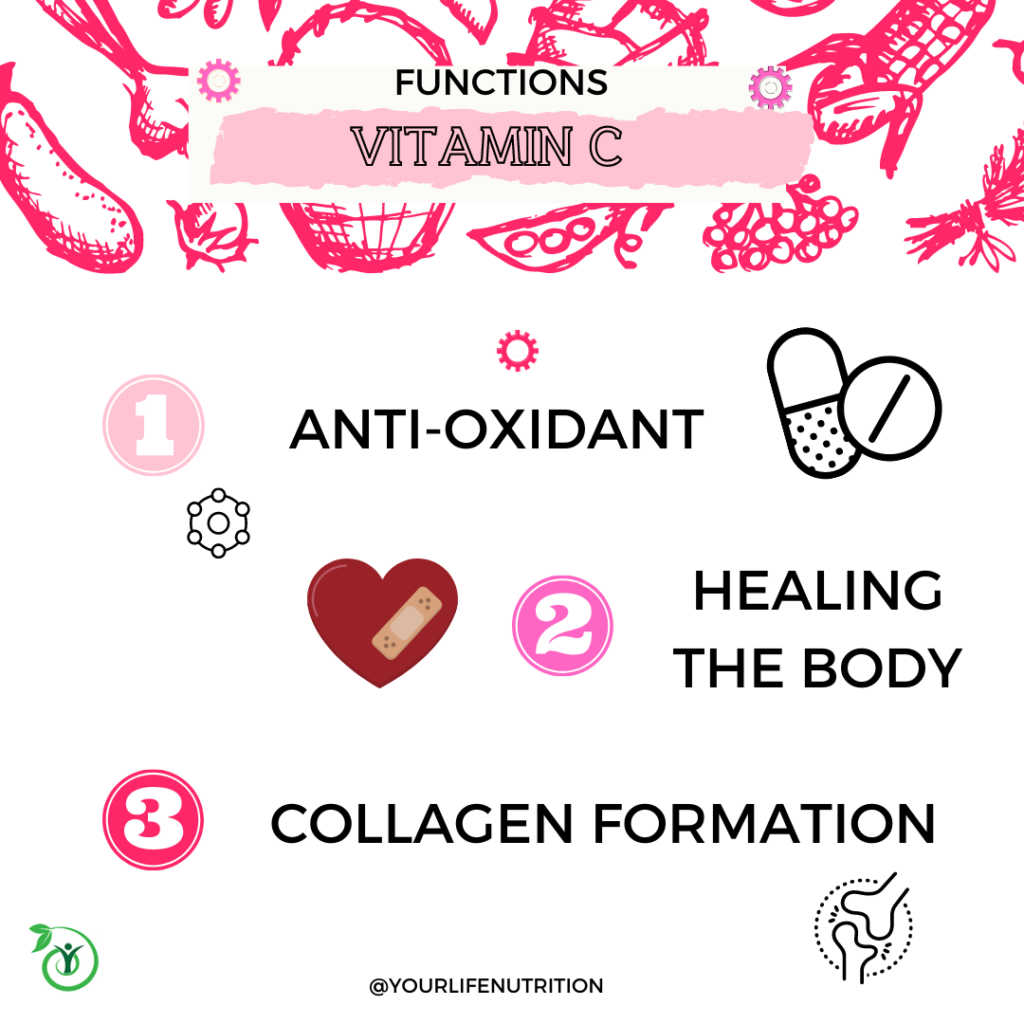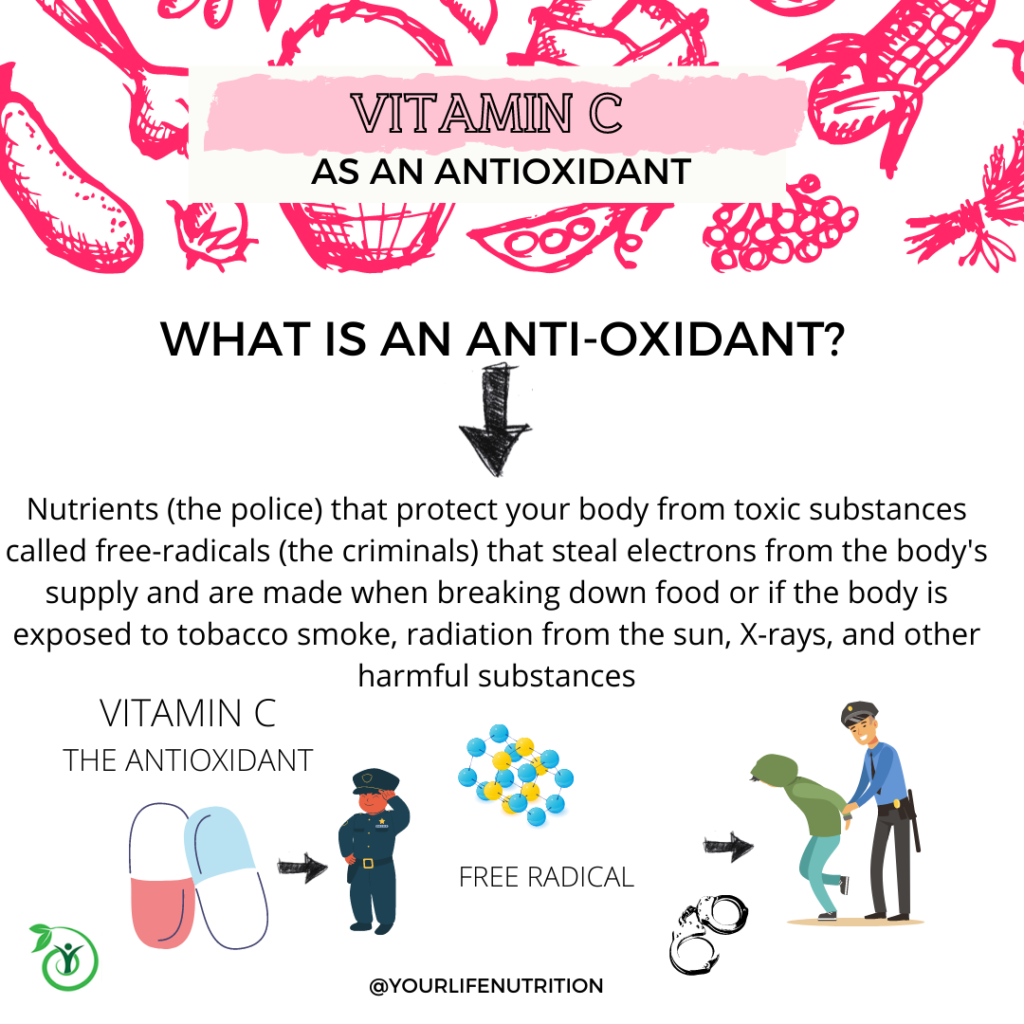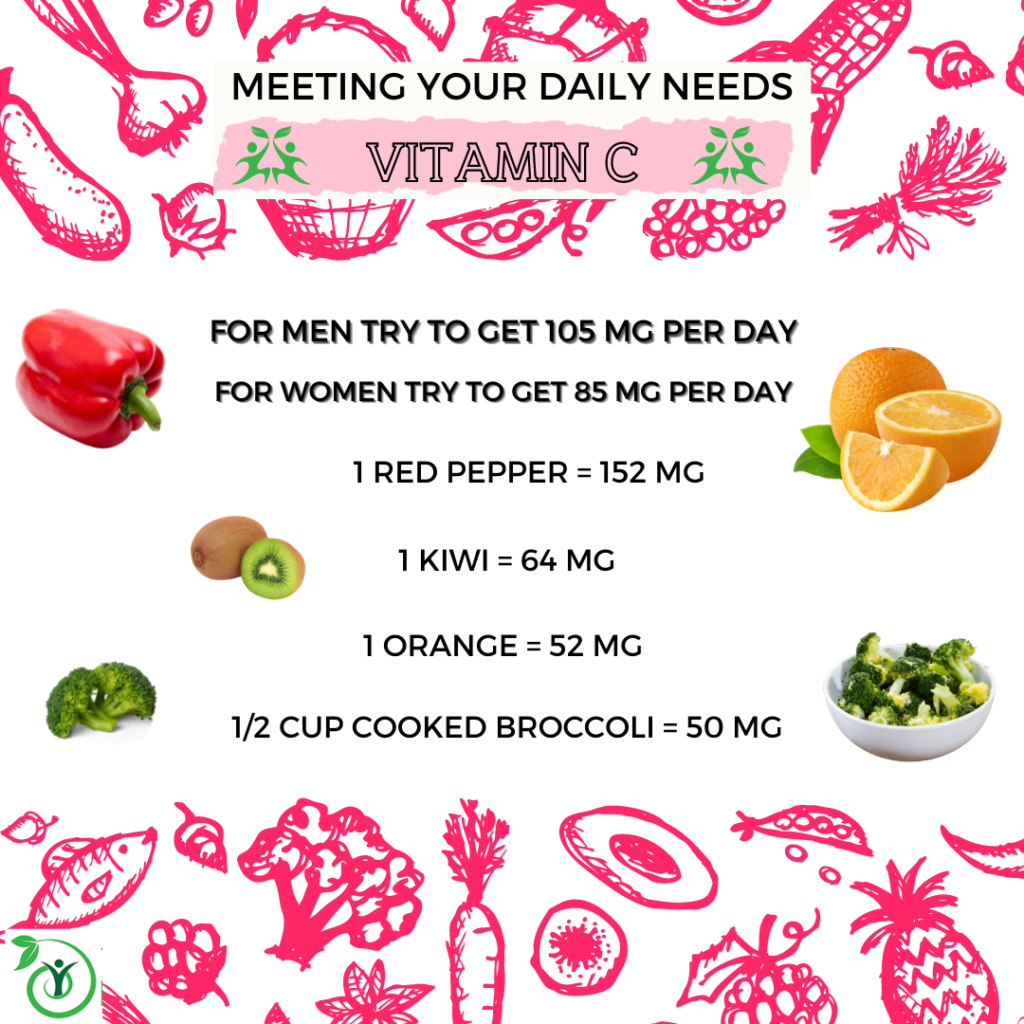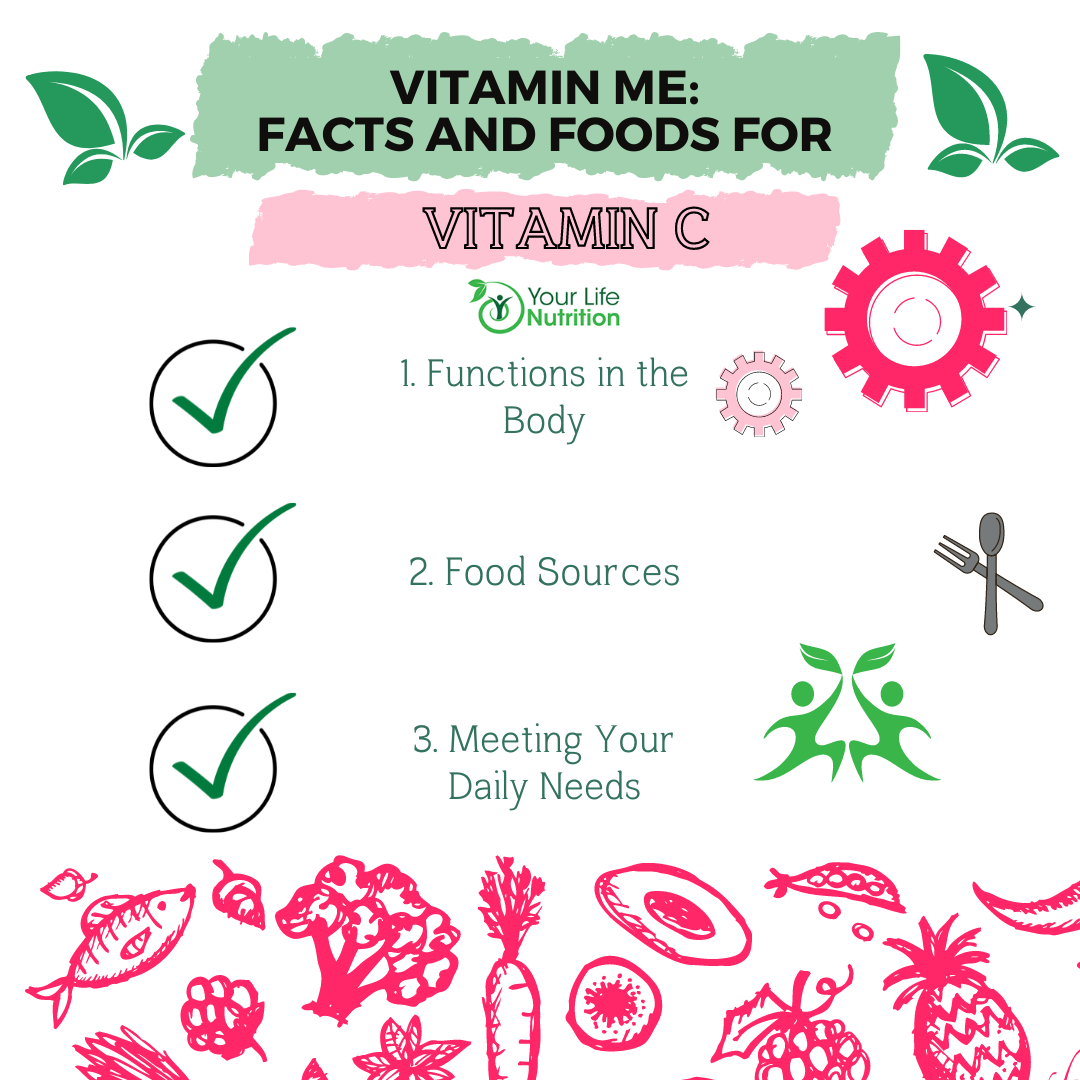Have you ever heard that you should take vitamin C when you get a cold? Why do you think this is? Vitamin C has tons of important roles in the body including forming blood vessels, cartilage, muscle, and collagen, healing the body, helping absorb and store iron and acting as an antioxidant.1 This word is pretty common when we are talking about vitamins, because several of them play this really important role in the body. But what is an antioxidant? These are nutrients that protect your body from toxic substances called free-radicals that are made when breaking down food or if the body is exposed to tobacco smoke, radiation from the sun, X-rays, and other harmful substances.1 Free-radicals are thought to increase the risk of developing heart disease, cancer, and more so having an antioxidant around is really important. You can think of antioxidants as the police of the vitamin family, keeping cells safe from those pesky free-radicals! In addition to this, vitamin C also helps to make hormones and brain and nerve related chemical messengers.2

So, since this little nutrient helps heal the body, it should help prevent or cure a common cold, right? Not necessarily! This has actually been found to be a myth since studies have not found support that taking vitamin C will reduce the risk of common cold.3 However, it may shorten length of and severity of symptoms, but this is not effective if taken after the onset of symptoms.3

Now something important to know about vitamin C is that, unlike other nutrients, our bodies do not manufacture it in house, rather, we have to get it from somewhere outside of the body.1 The good news is vitamin C is all over town! It can be found in an assortment of delicious foods like kiwi, grapefruit, strawberry, cruciferous vegetables like cabbage, broccoli, and cauliflower, white potatoes, oranges, lemons, lime, berries, tomatoes, peppers, brussels sprouts, and spinach.1,2 Sometimes, it can be undercover as ascorbic acid if you are looking at a nutrition label, but this is simply another name for it.1

Now you may be curious how much vitamin C you should try to eat a day since the body doesn’t make it. It is recommended that women get 75 milligrams a day and men 90 milligrams a day.1 This may seem like a lot, but it is much easier to get than you might think.
Here are a few examples of how to fuel up with vitamin C:
- 1 Red pepper = 152 mg
- 1 kiwi = 64 mg
- ½ cup cauliflower 52 mg
- 1 orange = 51 mg
- ½ cup cooked broccoli = 50 mg
- ½ cup cantaloupe = 26 mg
- ½ cup cooked spinach = 18 mg
- 1 baked potato = 17 mg
- ½ cup fresh strawberries = 7 mg

The body is really efficient at maintaining the perfect level of vitamin C in the body by reading the amount that gets absorbed.2 The more you eat, the less you absorb and the more that gets flushed out through the urine.2 After having 1000 mg, the body will only absorb 50% of the amount being consumed to try to prevent having too much which can cause negative effects.2 However, after reaching levels of 3000 mg or higher in one day, adverse effects can occur including kidney stones, gout, digestive upset and iron overload.2 Keep in mind that smoking can deplete vitamin c levels in the body, so smokers will need an additional 35 mg per day.3
It is pretty cool to think about how vitamin C is busy at work, fighting off free-radicals, helping heal the body, and assisting in so many other special functions. It is even more exciting that so many yummy foods provide us with the vitamin C we need to carry these out. The next time you’re munching on some berries or sipping some orange juice, don’t forget you’re gearing up the body to keep you healthy, strong, and protected.
Post created by Your Life Nutrition dietetic intern from the University of Akron: Michaela Campbell
References
- Vitamin C. Mayo Clinic. https://www.mayoclinic.org/drugs-supplements-vitamin-c/art-20363932. Published November 17, 2020. Accessed January 26, 2022.
- Vitamin C. The Nutrition Source. https://www.hsph.harvard.edu/nutritionsource/vitamin-c/#:~:text=RDA%3A%20The%20Recommended%20Dietary%20Allowance,RDA%20is%20suggested%20for%20smokers. Published May 27, 2021. Accessed January 26, 2022.
- Office of dietary supplements – vitamin C. NIH Office of Dietary Supplements. https://ods.od.nih.gov/factsheets/VitaminC-HealthProfessional/. Accessed January 26, 2022.





